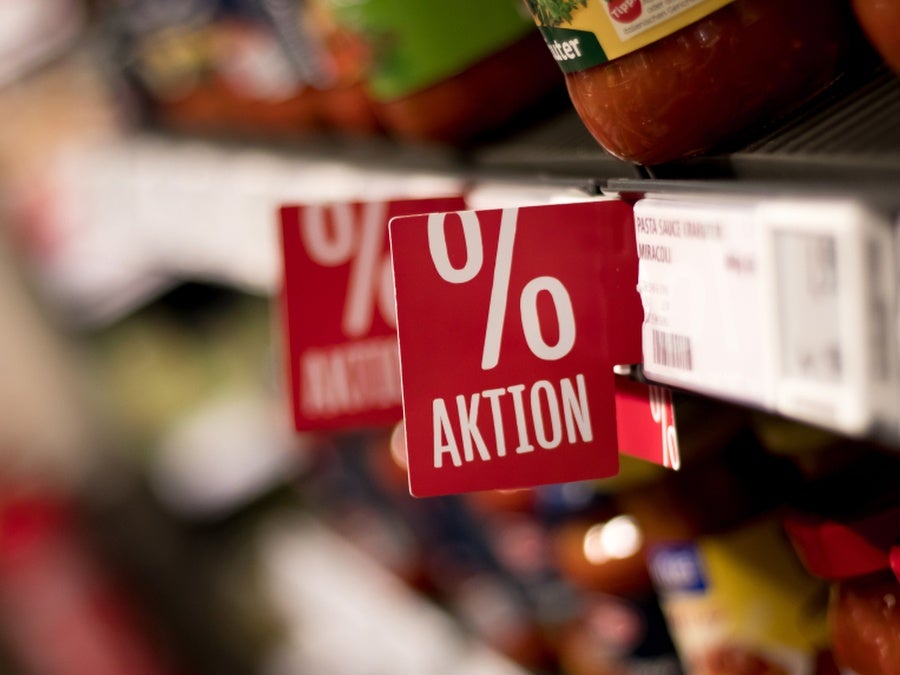
Headline inflation in Germany is expected to ease in March but food inflation is still rising, provisional numbers show.
Consumer prices, “harmonised” to compare with other EU countries, are expected to rise 7.8% in March compared to the same period last year, the German Federal Statistical Office reported yesterday (30 March).
This comes in above the 7.5% rate analysts had expected.
An alternative measure, derived from the consumer price index (CPI), saw headline inflation expected to rise 7.4% in March – a drop from the 8.7% CPI seen in both January and February.
But food prices, also measured by Germany’s CPI, will rise 0.5 percentage points to 22.3% in March compared to February, and 2.1 percentage points higher than January, provisional data from the Statistisches Bundesamt suggests.
In contrast, energy prices – which have been leading inflation alongside food prices since Russia’s invasion of Ukraine in February 2022 – saw a vast decline to 3.5% year-on-year in March, down from 19.1% in February.
The Statistisches Bundesamt put this down to the abnormally high inflation level of March 2022 as well as an energy-relief package from the German government. The €65bn ($70.7bn) package, the third of its kind in Germany since the Ukraine war began, includes an electricity price ‘brake’ for households and small businesses.
It comes as UK inflation unexpectedly soared to a 46-year high in March, led by food inflation. An easing in the UK’s headline rate of inflation and the prices of groceries in January had spurred optimism that a peak had been reached. But the country put the unexpected spike down to widespread shortages of fresh vegetables in February.
In Japan, headline inflation eased in February but grocery items rose to record high of 7.5%. Like Germany, the all-item dip was helped in part by a government subsidy reducing the cost of energy bills. But food items remained pricey, with fresh fish and seafood rising 15.5% year on year and dairy products climbing 11.7%.
